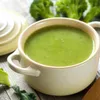Food for thought: Why iron is critical for your mood and mental health
Iron not only helps carry oxygen throughout your body, but it is also responsible for oxygen storage in your blood and muscles, for fatty acid metabolism, energy production, and the maintenance of your immune system.
Iron is a component of the molecule haemoglobin found in your red blood cells. It is responsible for carrying oxygen throughout your body and therefore, it is critical to how any cell within your body functions, including your brain. It is also responsible for oxygen storage in your blood and muscles, for fatty acid metabolism, energy production overall and the maintenance of your immune system.
Why does iron deficiency impact your mood so much?
The truth is that most of your dietary iron is absorbed in your duodenum, which is a part of your small intestine. But only five percent of all your dietary iron is available for absorption. Dietary source of iron itself can be inadequate for many. This means that what your body will have for absorption and utilisation is so little.
No wonder iron deficiency is so common. Animal sources contain heme iron while plant sources contain non-heme iron. Heme iron is more bioavailable. Plant sources can be better optimised by combining with some form of vitamin C.

The gut-brain connection
There are two key reasons why the health of your digestion is crucial to your mood and mental health. Your body requires optimal stomach acid to use iron from your foods.
Gastric acid is required for iron absorption because it dissolves insoluble ferric salts. Ferric salts are converted to a form which allows them to be absorbed by the small intestine.
With so many people today deficient in stomach acid, iron deficiency is on the rise. Frequent use of antacids can lower stomach acid, as also, weakened digestion from several other things including antibiotics and processed foods with poor fats.
Low stomach acid, therefore, prevents your body from absorbing iron, even if you consume several iron-rich foods.
When iron is low, oxygen flow to your brain is reduced, and this can trigger low mood, headaches, tightness of breath and depression. Poor gut health also triggers low mood due to your gut-brain connection.

How does iron deficiency trigger low mood?
Iron deficiency leads to poor oxygen uptake by the brain, leading to low mood, depression and dejection. Anaemia is the final stage of iron deficiency.
In a study published in the Lancet in 1996 research found that 78 percent of adolescents with iron deficiency had a remarkable improvement in mood, memory, cognitive ability and concentration after being given iron supplementation.
Iron is key to mood and mental health as it plays a key role in oxidative metabolism and the reduction of free radicals. It is also a cofactor in the synthesis of neurotransmitters and myelin. Your neurotransmitters are serotonin, dopamine, beta-endorphins, and GABA.
Serotonin is responsible for keeping you feeling peaceful, happy, and relaxed. It is your feel good neurotransmitter. Dopamine helps you feel motivated and focused. Beta-endorphins is your natural pain killer. GABA helps you stay calm.
When there are low levels of iron, it impacts the production of all these neurotransmitters and you can see it affect you personally in unique ways.
Maybe you do feel less focused. Maybe you do not feel calm. Iron is also a cofactor in the production of myelin, Myelin sheaths surround your nerves. Lower levels of myelin correlate with low mood and depression.

Where can you find iron?
The main thing to consider is your stomach acid. If you are on antacids or proton pump inhibitors it can trigger poor absorption of iron, even if you eat iron-rich foods. Focus on improving digestive health by cleaning up toxic foods.
You have to also see that you are not deficient by consuming enough iron-rich foods. Remember that animal sources of iron are heme iron and more bioavailable. Plant sources require that you consume them with some foods that have vitamin C in order to ensure better utilisation.
Some food sources of iron are found in red meat, organ meats, clams, lentils, eggs, fish, poultry, blackstrap molasses, cherry juice, green leafy vegetables, dried fruit, red meat, liver, moringa, kidney beans, chickpeas, beans, kale, pumpkin seeds, prunes, amaranth, and quinoa.
The thing to consider is to try and get your sources from those that are lower in sugars. If you are severely deficient, you might also need a short period of supplementation.
Some people may do well with just foods, but some people who have challenges such as very heavy menstrual cycles, low mood, poor cognition, and chronic fatigue may need something greater to first get them up to optimal levels.
Edited by Saheli Sen Gupta








